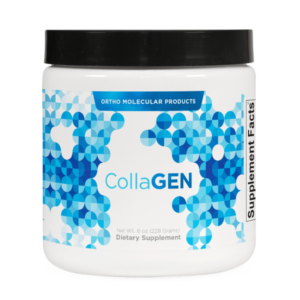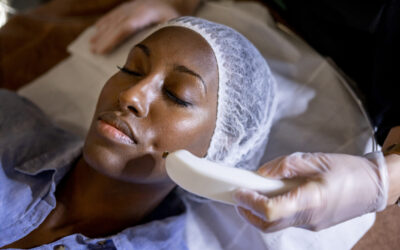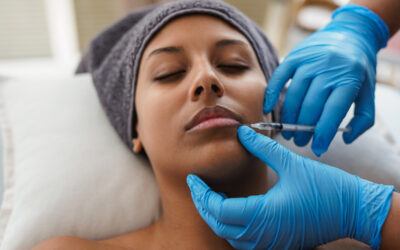As the most abundant protein in our bodies, collagen is the scaffolding that gives structure to our skin, bones, hair, nails, and connective tissues. But starting in our 30s, our body’s natural collagen production slows down, causing the all-too-familiar signs of aging: wrinkles, lax skin, and joint pains. Could collagen supplements be the fountain of youth in a bottle?
Here, our board-certified doctors Dr. Kenya Lee and Dr. Marvin Lee discuss collagen supplements’ effectiveness and the brand of supplements they recommend.
Why is collagen important?
Collagen is far more than just a beauty supplement; it’s a fibrous structure critical to your body’s composition and ease of movement. Aesthetically speaking, increasing collagen production is typically the primary goal of professional skin care treatments to improve the health and appearance of the skin. And because we experience this natural decline in collagen over time, adding a collagen supplement is a potential way to counteract the negative effects of collagen loss
A high-quality collagen supplement may improve visible signs of skin aging, and even reduce symptoms of osteoarthritis.
How do collagen supplements work?
Collagen supplements typically come in hydrolyzed form, meaning the collagen is broken down into peptides so it is easier for the body to absorb. These peptides are believed to signal the body to produce more collagen, thus potentially improving skin elasticity, joint health, and more. You can find near-countless collagen supplement options available in various forms, including powders, capsules, and drinks.
What does the science say about collagen supplements?
A growing body of research suggests that high-quality collagen supplements can offer tangible health and cosmetic benefits. Here are just a few notable studies:
- This systematic review of 11 randomized controlled studies found that oral collagen supplements increased skin elasticity, hydration, and dermal collagen density, with no reported adverse events.
- A meta-analysis of 19 clinical trials evaluated oral collagen supplementation as an intervention for skin aging. Results showed that collagen supplements reduced visible signs of skin aging due to improved skin elasticity and hydration.
- In a study on the effect of collagen supplementation on osteoarthritis symptoms, a meta-analysis of randomized placebo-controlled trials found that participants who took collagen supplements showed significant overall improvement in their osteoarthritis, particularly in their joint flexibility.
Collagen makes up 30% of the body’s protein and 70-80% of the skin’s dry mass.
Choosing the right collagen supplement
With the market flooded with collagen products, choosing the right supplement can be overwhelming. It’s also important to note that dietary supplements are not regulated by the FDA, leaving the public responsible for vetting these types of products. Part of our commitment to holistic beauty and wellness treatments is bringing only the finest products into our medspa.

After years of reviewing scientific research and evaluating the quality of different products, collagen supplements by Ortho Molecular Products® proved to be the best choice for our patients. Ortho Molecular uses the highest quality ingredients and its safety and efficacy are backed by science.
“Dr. Kenya and Dr. Marvin are excellent at what they do. They take the time to explain everything you need to know and make sure you understand. I look forward to each visit to learn new and exciting ways to look my best. Thank you both for all you do.”
—5-star Google review
Support your body from the inside out
We understand the importance of using only evidence-based products and treatments to enhance your natural beauty and promote overall health and wellness. To learn more about our supplements or other medspa services, please call PureLee Redefined at (719) 452-8541 or schedule your appointment by clicking the button at the top of this page!
References »
Ricard-Blum S. The collagen family. Cold Spring Harbor Perspectives in Biology. 2011 Jan 1;3(1):a004978. doi: 10.1101/cshperspect.a004978.
Oikarinen A. Aging of the skin connective tissue: how to measure the biochemical and mechanical properties of aging dermis. Photodermatology, Photoimmunology and Photomedicine. 1994 Apr;10(2):47-52.
Varani J, Dame MK, Rittie L, Fligiel SE, Kang S, Fisher GJ, Voorhees JJ. Decreased collagen production in chronologically aged skin: roles of age-dependent alteration in fibroblast function and defective mechanical stimulation. The American Journal of Pathology. 2006 Jun;168(6):1861-8. doi: 10.2353/ajpath.2006.051302.





